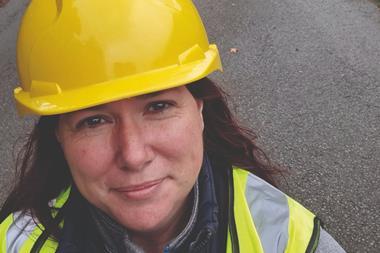Six years since COP24 in Paris and only a little longer since Greta Thunberg came to world attention, the great city of Glasgow will become synonymous with the fight against climate change (we don’t mention COP25).

The week had a shaky start – threats of rail strikes, snaking queues to get into venues and China and Russia casting a coal-burning shadow over the organisers’ ambitions. But it was falling trees on railway lines that scuppered the plans of many to arrive by sustainable transport. As a foretaste of what could happen more often if we do not pursue net zero, it did at least focus minds.
COP26 is the biggest global event held since the pandemic and expectations are high. There is, though, a creeping sense of optimism. The US and president Biden brought their star power, and announcements on methane and deforestation have been more comprehensive and signed by more countries than expected.
The finance is here in Glasgow, too. I heard Mark Carney, former governor of the Bank of England and the prime minister’s finance adviser for the COP26 climate summit, talk at an Economist event about financing the energy transition in the developing world. And the money is now looking at hydrogen and carbon capture, utilisation and storage. The innovation is also here including major tech businesses with the software and tools to help corporates capture and report their emissions data.
With buildings and construction accounting for 39% of emissions, much of this is climate tech, which enables companies to monitor and reduce energy. At the design stage, digital twins allow for more efficient building and project planning. Low-carbon cement is one of the biggest opportunity areas (cement accounts for more carbon dioxide than the aviation sector). Dynamic and high-performance glass, cool roofs and high-efficiency heat pumps are here now and their use is increasing.
Developers are increasingly pursuing a BREEAM rating. With a high-quality build but with reduced running costs, the greenest possible buildings are being specified by corporates in their property search and are appreciated by employees. We are relocating our Bristol office to a building called Halo. There is palpable excitement about the move to one of the UK’s greenest post-Covid office developments.
While the landmark Environment Bill meanders through parliament, it is worth remembering that it will be a world-leading piece of legislation, which will commit us to some challenging targets. When companies have to include carbon on their balance sheets, reducing scope 3 emissions (eg. from supply chains) will shoot up the boardroom agenda. We will also soon have the Planning Bill and a reinforced commitment to building on brownfield land.
As I write this, Thunberg is leading a march through Glasgow protesting that COP26 is a “two-week celebration of business as usual”. But she is right in one way because it will be (largely) business and the private sector (as usual) that need to step up, albeit through a combination of carrot and stick. I am feeling optimistic after the first week but I hope Greta does not prove us all wrong.
James Watson is head of decarbonisation at Osborne Clarke
































No comments yet